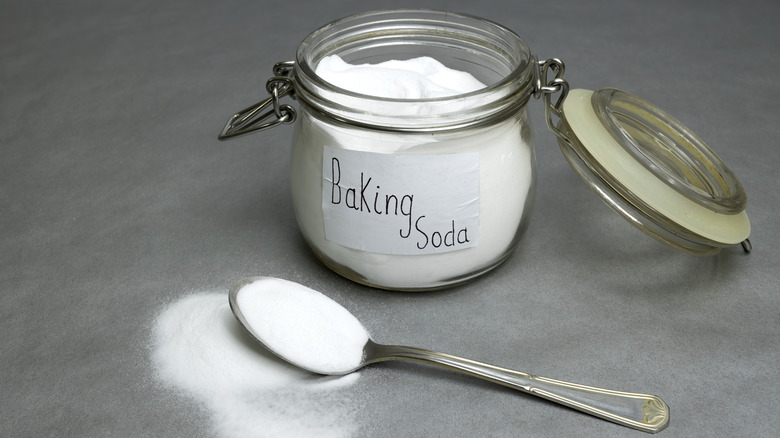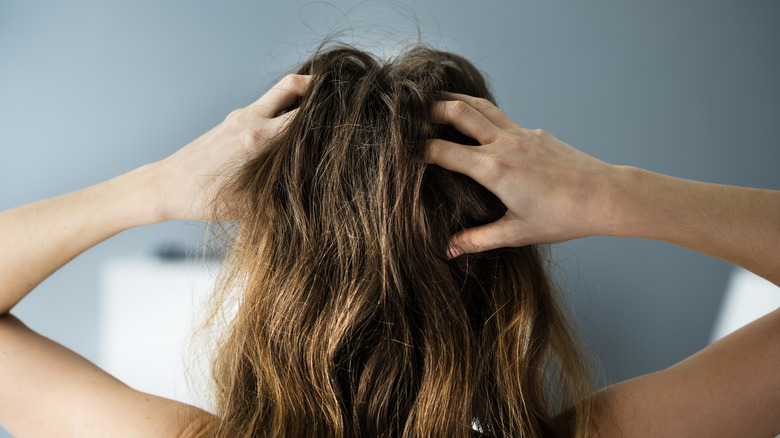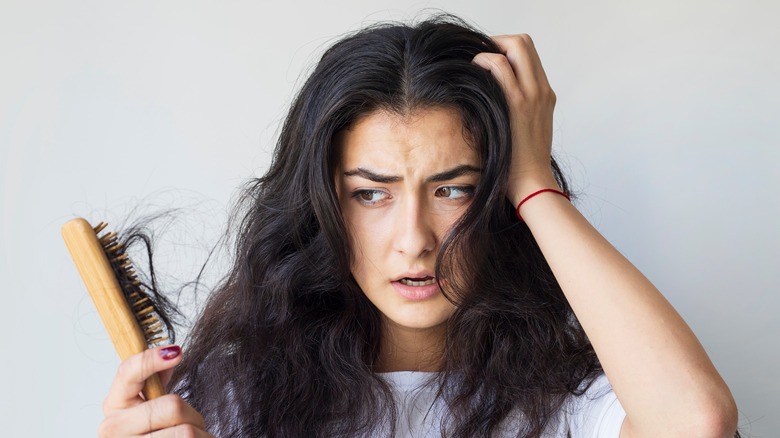Why You Should Consider Washing Your Hair With Baking Soda
With the emergence of natural and organic options in everything from food and drink to personal products and household cleaners, many are choosing to go back to the basics. By doing so, they are avoiding pricey, often ineffective, and potentially harmful products.
One popular alternative to using harsh shampoos is the "no-poo" method, where natural ingredients are used instead (via No Poo Method). The goal is to conquer build-up that often comes from store-bought shampoos while also boosting optimal growth.
The belief is that shampoo strips it of its natural oils — and then your oil glands work overtime, which causes your hair to be more oily. You end up washing your hair more often to combat the excess oil, and a vicious cycle ensues (via Marie Claire).
The no-poo method calls for using everyday household products like apple cider vinegar, baking soda, or just plain water to wash your hair instead of shampoo.
Baking soda is one of the more popular items used, yet there are some things to know before you wash your hair with baking soda.
What baking soda can do for your hair
Baking soda can help restore your hair to its natural state by stripping away residue from years of using shampoo, conditioner, and other hair products (via Medical News Today). The process of fully rebuilding your scalp and hair takes about six weeks.
Dermatologist Anna Guanche tells Byrdie, "Some benefits of using baking soda for the hair include leaving it clean, shiny, and soft because the baking soda helps remove buildup of oils, soaps, and any remnants of hair care products."
Baking soda is also used as a skin and hair exfoliant. Besides removing shampoo residue, it is also thought to help soothe an irritated scalp by regulating the pH level. Since it removes dry skin from the scalp, it can also help get rid of dandruff.
There are some drawbacks to using baking soda on your hair
While baking soda does a great job of stripping your hair clean of residue, it may work too well for some people. "Considering that we use baking soda to clean grills, it should be no surprise that baking soda is harsh on hair, especially those with curly, dry, or thin hair," dermatologist Chesahna Kindred tells WebMD.
According to Healthline, people who regularly wash their hair with baking soda may notice brittle or broken strands. This is particularly true for those who use apple cider vinegar to rinse after washing with baking soda. Though it's a natural anti-fungal that can help with dandruff, apple cider vinegar is also (duh) acidic and can damage hair.
Kindred also warns that just because something is natural doesn't necessarily mean it's harmless. The best way to know if baking soda may help or hurt your hair is to consult your hair stylist, who knows your unique hair texture.
Those with chemically treated hair, colored hair, dry skin, or sensitive skin are advised to skip this method. You should also think twice if you regularly use blow dryers, curling irons, or heated wands to style your hair.


